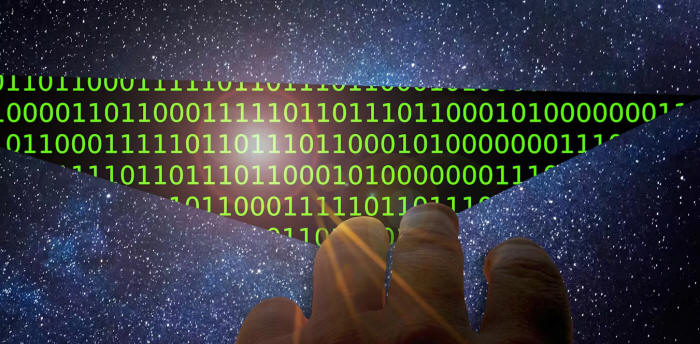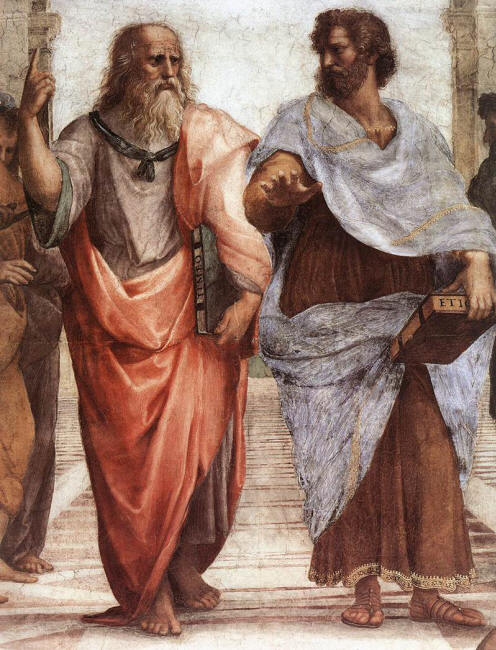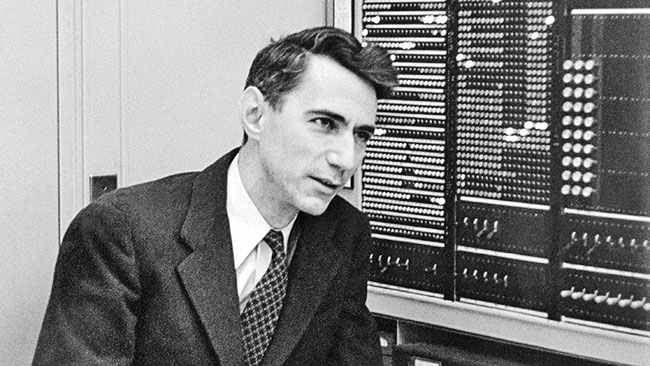|

by Melvin M. Vopson
Associate Professor of Physics,
University of Portsmouth
October 18, 2023
from
TheConversation Website

The simulated universe theory implies that,
our universe, with all its galaxies, planets
and life forms, is a meticulously programmed computer
simulation.
In this scenario, the physical laws governing
our 'reality'
are simply algorithms.
The experiences we have are generated by the
computational processes of an immensely advanced system.
While inherently speculative, the simulated universe theory has
gained attention from scientists and philosophers due to its
intriguing implications.
The idea has made its mark in popular
culture, across movies, TV shows and books - including the 1999
film
The Matrix...
The earliest records of the concept that
reality is an illusion are from ancient Greece.
There, the question,
"What is the nature of our reality?",
posed by Plato (427 BC) and
others, gave birth to idealism.
Idealist ancient thinkers such as Plato
considered mind and spirit as the
abiding reality...!
Matter, they argued, was just a manifestation
or illusion...
Fast forward to modern times, and idealism
has morphed into a new philosophy.
This is the idea that both the material
world and consciousness are part of a simulated
reality.
This is simply a modern extension of
idealism, driven by recent technological advancements in
computing and digital technologies.
In both cases, the true nature of reality
transcends the physical.
Within the scientific community, the concept of a simulated universe
has sparked both fascination and skepticism.
Some scientists suggest that if our reality
is a simulation, there may be glitches or patterns within the
fabric of the universe that betray its simulated nature.
However, the search for such anomalies
remains a challenge.
Our understanding of the laws of physics is still
evolving.
Ultimately, we lack a definitive framework to
distinguish between simulated and non-simulated
reality.
A
new law of physics
If our physical reality is a simulated construct, rather than an
objective world that exists independently of the observer, then,
how could we scientifically prove this...?
In
a 2022 study, I proposed a possible
experiment, but it remains untested today.

Plato (left) pointing upwards,
in reference to
his belief in the higher forms.
Wikipedia
Raphael's The School of Athens, depicting Plato
pointing upwards (above image), in reference to his belief in
the higher forms...!
However, there is hope...
Information theory,
is the mathematical study of the
quantification, storage and communication of information.
Originally
developed by mathematician
Claude Shannon, it has become increasingly popular in physics
and is used a growing range of research areas.

Claude Shannon
Invented the Future.
Today's information age is only possible thanks to
the groundbreaking
work of a lone genius.
Source
In my recent research, published in
AIP Advances, I used
information theory to propose a new law of physics, which I call the
second law of infodynamics.
And importantly, it appears to support the
simulated universe theory.
At the heart of the second law of infodynamics is the concept of
entropy...:
a measure of disorder, which always rises
over time in an isolated system.
When a hot cup of coffee is left on the table,
after a while it will achieve equilibrium, having the same
temperature with the environment.
The entropy of the system is at maximum at this
point, and its energy is minimum.
The second law of infodynamics states
that the "information entropy" (the average amount of
information conveyed by an event), must remain constant or
decrease over time - up to a minimum value at equilibrium.
So it is in total opposition to the second law
of thermodynamics (that heat always flows spontaneously from hot
to cold regions of matter while entropy rises).
For a cooling cup of coffee, it means that the
spread of probabilities of locating a molecule in the liquid is
reduced. That's because the spread of energies available is reduced
when there's thermal equilibrium.
So information entropy always goes down over time
as entropy goes up. My study indicates that the second law of
infodynamics appears to be a cosmological necessity.
It is universally applicable with immense
scientific ramifications.
We know the universe is expanding without the
loss or gain of heat, which requires the total entropy of the
universe to be constant.
However we also know from thermodynamics that
entropy is always rising.
I argue this shows that there must be another
entropy - information entropy - to balance the increase.
My law
can confirm how genetic information
behaves. But it also indicates that genetic mutations are at the
most fundamental level not just random events, as
Darwin's
theory 'suggests'.
Instead, genetic mutations take place according
to the second law of infodynamics, in such a way that the genome's
information entropy is always minimized.
The law can also explain phenomena in atomic
physics and the time evolution of digital data.
Most interestingly, this new law explains one of the great
mysteries of nature.
Why does symmetry rather than asymmetry
dominate the universe...?
My study demonstrates mathematically that high
symmetry states are the preferred choice because such states
correspond to the lowest information entropy.
And, as dictated by the second law of
infodynamics, that's what a system will naturally strive for.
I believe this discovery has massive implications for,
-
genetic research
-
evolutionary biology
-
genetic therapies
-
physics
-
mathematics
-
cosmology,
...to name a few.
Simulation theory
The main consequence of the second law of infodynamics is,
the minimization of the information content
associated with any event or process in the universe.
This in turn means,
an optimization of the information content,
or the most effective data compression.
Since the second law of infodynamics is a
cosmological necessity, and appears to apply everywhere in the same
way, it could be concluded that this indicates that,
the entire universe appears to be a
simulated construct or a giant computer...
A super complex universe like ours, if it were a
simulation, would require a built-in data optimization and
compression in order to reduce the computational power and the data
storage requirements to run the simulation.
This is exactly what we are observing
all around us, including in digital data, biological systems,
mathematical symmetries and the entire universe.
Further studies are necessary before we can
definitely state that the second law of infodynamics is as
fundamental as the second law of thermodynamics.
The same is true for the simulated universe
hypothesis...
But if they both hold up to scrutiny, this is perhaps the first time
scientific evidence supporting this theory has been produced - as
explored in
my recent book.
|




